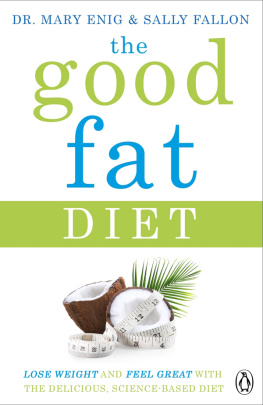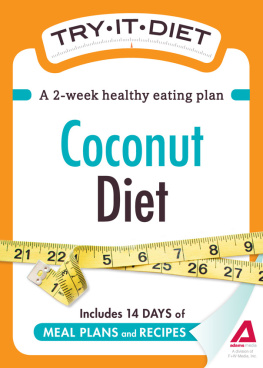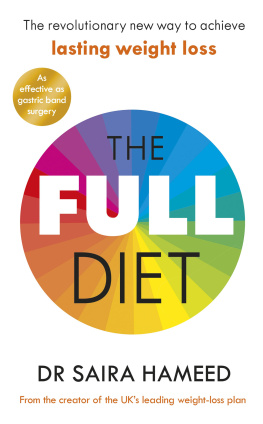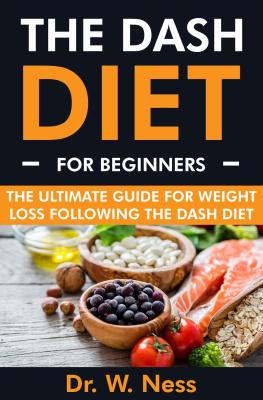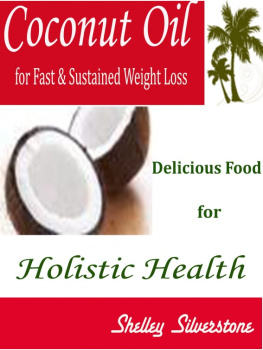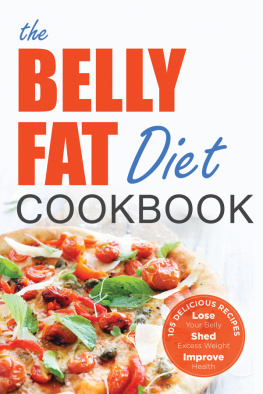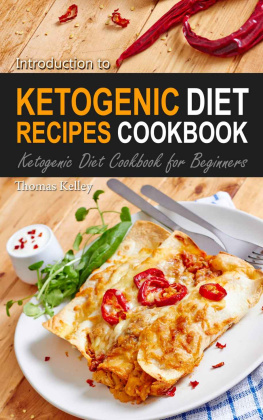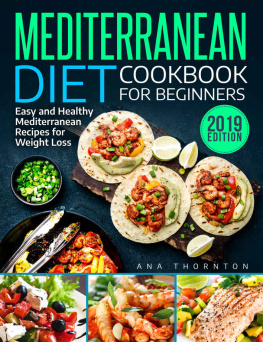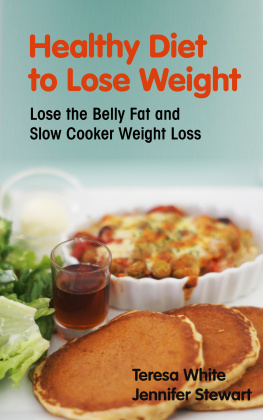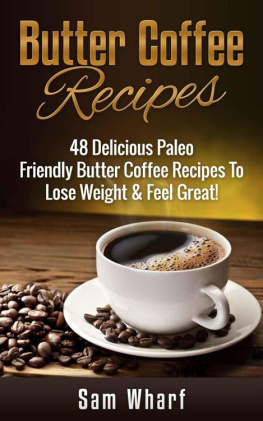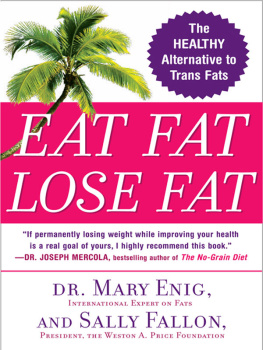Contents
ABOUT THE AUTHORS
Dr. Mary Enig is a world-renowned biochemist and nutritionist, best known for her pioneering research on healthy fats and oils and her early protests against trans fats more than twenty-five years ago. A consultant and clinician, Dr. Enig is also the former contributing editor of the scientific journal Clinical Nutrition and a consulting editor of the Journal of the American College of Nutrition. Her work has been published in numerous journal publications, and she is a well-known lecturer at scientific conferences. Dr. Enig received her Ph.D. in Nutritional Sciences from the University of Maryland, College Park, and is a Fellow of the American College of Nutrition, a member of the American Society for Nutritional Sciences, and president of the Maryland Nutritionists Association. She is the author of the self-published fats information bible, Know Your Fats, and coauthor with Sally Fallon of Nourishing Traditions, an expanded cookbook on traditional diets.
Sally Fallon is the founder and president of the Weston A. Price Foundation, a nonprofit organization devoted to helping people put into practice the most health-promoting approaches to nutrition, based on the life-giving foods that have nourished humanity for centuries. The foundation has over two hundred chapters throughout the United States and abroad, and its website (www.westonaprice.org) is a popular Internet reference destination. Ms. Fallon is the editor of the foundations quarterly journal, Wise Traditions in Food, Farming, and the Healing Arts, and she also directs the Weston A. Price Foundations annual conference on nutrition and health. Ms. Fallon is a highly sought-after speaker, seminar, and workshop presenter, and she has been a guest of numerous radio talk-show hosts, including Dr. Robert Atkins, Robert Crayhon, Leyna Berman, Derek McGinty, and Terri and Joe Graedon of the Peoples Pharmacy. A gourmet cook, Ms. Fallon has recently applied her outstanding culinary skills to the discovery of many varied and wonderful ways to enjoy coconut.
Dr Mary Enig
and
Sally Fallon
THE GOOD FAT DIET
Lose Weight and Feel Great with the Delicious, Science-Based Coconut Diet
PENGUIN BOOKS
UK | USA | Canada | Ireland | Australia
India | New Zealand | South Africa
Penguin Books is part of the Penguin Random House group of companies whose addresses can be found at global.penguinrandomhouse.com.
First published as Eat Fat, Lose Fat in the United States of America by The Penguin Group 2005
First published in Great Britain by Michael Joseph 2005
Reissued as The Good Fat Diet 2016
Text copyright Mary Enig and Sally Fallon, 2005
Images Shutterstock
The moral right of the authors has been asserted
ISBN: 978-1-405-92777-2
Acknowledgments
No one deserves more credit for making this book happen than Alison Rose Levyit was her vision, her conviction, and her organizational and writing skills that set this project in motion and then wove our input together in a creative and timely fashion.
Stephanie Golden then worked ceaselessly to give us a structural and finished manuscript, always with an eye to clarity and consistency.
Janis Vallely of Janis Vallely Authors Group kept the project moving smoothly; her advice and suggestions have been invaluable.
And Laureen Rowland of Hudson Street Press created a remarkable alchemypreserving our vision of what this book should be while molding it into a form that the public can embrace.
Many others contributed: Brian Shilhavy, with his coconut-info e-mail discussion board, provided important testimonials and feedback; members of the Weston A. Price Foundation, who were happy to provide their weight-loss and recovery stories; several creative cooks, who shared their recipes; and our own families, with their encouragement and support.
Finally, we must gratefully acknowledge Weston A. Price and many other scientists of integrity, willing to engage in the honest research that, although often unheralded, has provided guidelines to the use of coconut oil for weight loss, and whole foods for vibrant health.
Chapter One
Facts Versus Fears About Fats
Americas Anti-Fat Obsession
As the French maintain their trim physiques while consuming triple cream brie, steak au poivre, and barnaise sauce, most American adults would barely dare to drink a glass of whole-fat milk. For the last 25 years, government recommendations, medical doctrine, food advertising, and so-called health experts have stressed low-fat and non-fat foods, cautioning people to avoid fats in general, particularly saturated fats from animal products and tropical fats, like coconut.
Are you eating lots of foods high in fat (especially saturated fat)? worries the American Heart Association website. Choose a diet that is low in saturated fat and cholesterol, echo the current (2000) United States Department of Agriculture (USDA) food guidelines. A scant two to three daily servings of dairy or other animal foodsspecified to be low-fat or fat-freeare recommended in the Food Pyramid (developed by the USDA and the U.S. Department of Health and Human Services). The National Heart, Lung and Blood Institute website offers heart healthy recipes with reduced fat content, such as Stuffed Potatoes made with soft margarine, low-fat cottage cheese, and low-fat milk.
Yet America, not France, is the nation with galloping rates of obesity, leading many people, and now many researchers, to wonder:
- Are the vegetable oils and trans fats contained in processed foods really healthier than the fats in natural foods, like butter and cream?
- Is coconut oil, a staple in countries with lower rates of chronic disease than ours, really so deadly?
How effective have the recommended low-fat diets and low- and non-fat foods really been, given that 97 million Americans (thats 64 percent, an 8.6 percent jump from 1994 to 1999) are overweight, according to a study published in the October 2002 Journal of the American Medical Association.
And weight gain is not just a question of appearance. Obesity was number two on the Centers for Disease Control and Prevention list of preventable causes of death in 2004 (after smoking). According to government statistics, being overweight substantially increases the risk of hypertension, type II diabetes, coronary heart disease, stroke, gallbladder disease, osteoarthritis, and respiratory problems, as well as endometrial, breast, prostate, and colon cancers. Higher body weight increases mortality for all causes.
If you are among the overweight and want to avoid these diseases, youre caught in a vicious cycle. Once the pounds pack on, your energy plummets, making it harder to exercise. Even if you only need to lose a few pounds, or are not overweight at all, you may find that you suffer from low energy, chronic fatigue, food cravings, and depression. Why?

